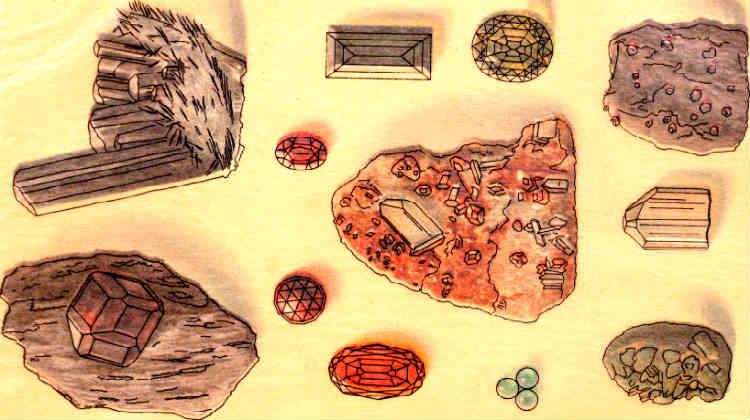
My university lies at the center of a small farming town. It is a splotch of academia in the midst of many hay fields, and this year it has eleven thousand students. I’m here to learn creative writing, or really to hang out with creative writers. My school talks about taking care of yourself. We have a Wellness Center where anyone can wander in and get 25 free condoms (and, if you ask with a straight face, a demonstration of how to apply them on a wooden wiener). Every so often I get an email that informs me that a full third of students here chose not to drink at all, that I don’t have to go to parties, and if I choose to do so, I should alternate alcoholic beverages with water. We don’t do the Greek life. The school clinic offers personal therapy and workshops on coping with anxiety. Once a year student activists wear jaunty blue casts for a week to take a stand against the stigma of mental illness. In all these ways, my university is at the forefront of mental health, by which I mean they acknowledge it.
William Saroyan wrote, “I do not know what makes a writer, but it probably isn’t happiness.” Hemingway (supposedly) famously instructed writers to write drunk and edit sober. George Orwell said, “One would never undertake [writing] if one were not driven by some demon whom one can neither resist nor understand.” In Forest For The Trees, Betsy Lerner says that “some [writers] pick their skin, some pull out their hair or, in more extreme cases, cut, burn, or scar themselves.” Much more than any one person can sum up, decades of conferences, classrooms and memoirs have made the message clear: if you want to be a writer, you’re going to spend some time in the deep end.
Writing classes at Central take place inside a maze of a building. The building is split down the middle, and the sides mirror each other. I’ve been told this was to prevent student riots, although I’m not sure how that would work. It’s impossible to tell which side of the building you’re on unless you have the placement of the indoor plants memorized. Most of us do. The classrooms are all yellowed linoleum and ancient brick. In my senior year, chunks of the ceiling begin to fall during a discussion about Toni Morrison; we move to another room and watch the roof warily. We are jealous of the new science buildings, their student lounges and functional elevators.
By the time I get deep enough into my program to take Creative Nonfiction, I am ready to spill my guts. I write about my family falling apart. I write about my brother slipping off to heroin and meth, my mother succumbing to the depression that had ever tugged at her sleeves, my father disappearing into his work and me standing in the middle, trying and failing to hold them together. I write about slicing myself open because it sounded like a good idea. I read this work to my classmates, and then I sit down in my chair and collect a dozen or so copies of my work, all with notes scribbled in the margins, corrections and suggestions and encouragement. Some are helpful and some redundant. One says If possible, add more trauma.
This isn’t the first time I’ve heard that kind of advice. Danger + desire = drama. If nothing is going wrong in a story, your reader is going to sleep. If you’re writing memoir, that means things have to be going wrong with you. Before Christmas break, a professor tells us what’s bad for the heart is good for the art. She means this gently, a consolation to a group of students who are nervous to return home for a full month to families that may or may not be sane enough to receive them.
But it isn’t always consolation; sometimes it’s permission. Go ahead and don’t take your meds––what’s bad for the heart is good for the art. Commit quickly to relationships that will inevitably leave you shattered––what’s bad for the heart is good for the art. Avoid a therapist. Flirt with an eating disorder. Put yourself in dangerous situations and do whatever feels exhilarating in the moment. It’s good for the art, and the art is what matters.
I have Obsessive Compulsive Disorder. I keep it pretty well under wraps, for the most part. I take a little pill each night that keeps me from sinking into a hole I can’t come out of. I manage it. I carry hand sanitizer.
There’s a lie I’d like to get away with: I’m fine, I’ve got this, all it takes is a little hand sanitizer. I want to keep all the rest of it to myself, a quiet and desperate secret, a labyrinth in my brain that only I get lost in. I don’t want to tell you that it takes so much more than hand sanitizer; that I don’t register for morning classes because I am so often up at night trying to hold myself together, or how many times I have stood, frozen, unable to get a dark thought out of my head. I do not want to see the look on your face when you realize the fear of germs is the least frightening thing about this, that it goes much deeper and leaves me feeling much sicker. You will not trust me. Exposer of guts that I am or wish I was, I am still unwilling to show you the hundred ways I get lassoed by my own malfunctioning neurotransmitters.
OCD carries a stigma wherever you go, but less so in the writing world. I’m in good company. Writers write because they’re sad. Or they’re sad because they write. No one really knows, but the two things go hand in hand, bosom friends, Anne and Diane, and blank pages are cherry cordial.
Which I guess would be an unfortunate but personal problem except that sometimes––many times––sadness gets the best of writers. It got the best of Hemingway and Plath and Woolf and Berryman and David Foster Wallace. It got the best of countless whose names we will never know. This tragic lineage is often dismissed by the idea that being a little weird is probably good for your writing. Being weird gives you something to write about, or at least gives you the social isolation required to sit down and start chronicling your angst. But somehow this has grown from the thing that gets you started to a key part of the process, like you won’t write as well as Hemingway if you don’t match him drink for drink.
When you get diagnosed with OCD, you suddenly hear a lot of people talking about it. It usually comes up as a joke. Like “Oh, I’m so OCD about my socks,” or “I’m super OCD about having trash in the car.” If it didn’t sting, it would be funny. I’m tempted to ask them about it, to make them explain what about their socks hurts so badly. I want to say, “so does the trash in the car make you feel like you’re the one who is going to die, or is it a family member you’re worried about killing?”
Because that’s usually what it comes down to with OCD, some grievous type of harm. OCD has two main symptoms: obsessions and compulsions. Most people have heard about compulsions. Think washing your hands again and again, or flicking a light switch on and off. Think “Monk.” But the obsessions drive the compulsions. You do an action compulsively to avoid an obsessive thought. It goes if I wash my hands, the germs on them will not kill the next person who shakes my hand. So you wash your hands. But then your brain resets, gets stuck in a loop, and it’s like you never washed them in the first place. So you wash them again. And again. And if you try to stop yourself, if your hands are cracked and bleeding or you have to go to school or work or you are ashamed for someone to find you still in the bathroom scrubbing, you are stuck with your heart racing and your stomach convulsing and your skin hot and clammy because you know, you are certain, that the next person who touches your hands will die.
When someone casually and stupidly says they have OCD, it aches like a punch in the kidneys. I know they’re just ignorant, that they’re thinking picky and I’m thinking tormented. I want to explain to them what OCD really means. I want to show them how many times I have lain on my bed paralyzed with fear I could do nothing to assuage. I want to make them see the price of what they find funny, of what their jokes make harmless.
I make friends with other writers on campus. It’s a small program; we run into each other a lot. I ask a classmate how she’s doing, and she tells me that she drank until near-blackout the night before. She’s smiling when she tells it. I have a hard time smiling back.
I read my classmates’ work for classes. My classmates’ stories aren’t mine to tell, but their writing is full of rape, of homeless parents, of loving people who shattered them. They write their own destruction again and again and again.
I want to tell them they don’t have to bleed like this. I want to say it isn’t okay. I want to gather them up and take them to the counseling center across campus. Instead, I fix their commas. I remind them to show and not tell. I point out where their ache comes off as contrived, as if any of us have the right to say whether someone else is hurting prettily enough.
A professor leads a poetry slam at the local pizzeria. Someone reads about being eaten out by a dog and their desire to make sweet love to Bing Crosby. Another student reads a celebration of their addictions, a love letter to needles and spoons. The professor is drunk. He shouts at students who need to leave early, and roars praise at anyone who reads about how they hurt, they’re hurting, they’re hurting themselves. That night, we don’t bother with distinctions.
In class, the same professor tells us to do anything for our art. I stare at my notebook. I wonder if I don’t love writing enough, that I won’t do anything for it.
“I have to take a break from memoir,” I say.
“Okay,” my writing mentor says. Her office is big, and she makes jokes about how silly it is to have an office so large, and this puts me at ease because it reveals that she understands abun-dance as poorly as I do. Every other week I hand her chunks of my life turned to letters on a page and hope it doesn’t kill me to do so. So far, it hasn’t.
“I was doing that assignment, the Washuta one, and then I was hyperventilating on the floor,” I say. I could tell her more, but I am still deep in the resulting depression of this panic attack, and getting to school seems like such an achievement that I won’t push myself to revisit this moment, the carpet pressed against my face and my best friend’s fake-calm voice coming through my phone, asking me to count colors, to look around the room and maybe to come back from wherever I am. I do not say that I didn’t understand why I was crying, only I was, and maybe I was somehow 14 again, and maybe old things were swallowing me whole, and maybe I won’t be okay anymore, and even this meeting makes me want to go home and lay back down. I sum this up: hyperventilating.
My writing mentor is walking empathy. She looks like she would give me a hug if I hadn’t already given her essays detailing how much I don’t want one. She mentions seeing a counselor. She suggests other genres I can dabble in. She agrees to see me in two weeks.
Which is to say: I’m lucky.
Back in one of those dusty linoleum-and-brick classrooms, an undergraduate reads her essay aloud. It needs fixing, but the basis is there, the tension and the ache. I scribble edits in the margins. The professor frowns.
“I thought you were going to put your ex-husband in there,” he says. He looks disappointed.
She shifts in her chair, looking down at her paper, and twenty eyes watch her. “I wasn’t ready to write about him yet,” she says.
He nods, but the look doesn’t disappear. “It would have been better, though.”
It would have been better if you forced yourself, he means. If you forgot for a while that you are a soul, all cut up and tattered and made of razor blades, and just used yourself like a character. Just pushed a little harder. Just bled a little more.
On the night of that panic attack, I didn’t write anything particularly beautiful. No magical pulse of insanity arrived to make my writing flow true and straight. In the days that followed, I was too sad to move, let alone pick up my notebook. And even if I was, if driving myself to the brink was the route to a great essay, how many essays could I get out before I gave up? How fast would I lose the race against my own destruction?
You can frame nearly anything as good for your art. Take a walk. Plant a willow. Drink until you can’t remember how to stand. Inject heroin into your veins and ride the resulting high into a poem. Because creativity is so inexplicable and impossible to pin down, you can attribute it to nearly anything. I can eat a mushroom omelet every morning and claim this is the key to churning out essays. Maybe it is. Maybe my classmates’ binges are part of their process.
No one named me puritanical queen of the writing process, so I don’t get to decide what’s good for other people. But I can make observations. And what I’ve observed is that almost everyone struggles with sadness sometimes, writers especially. Something drove them to the solace of the page, and that something is often an ache that sits at the core of them and pulses when they speak. Nobody gets to escape being sad, and sad people write, and that’s beautiful, I think, because I am also sometimes bone-achingly sad and would like to keep on writing.
I can’t get rid of my disorder; I have tried medication and prayer and therapy and wishing and holding my eyes shut really, really hard, as if I could develop Matilda’s telekinesis and make the synapses in my brain run true. It doesn’t work. No matter how much I pray, brain scans will still show the front of my brain lit up like Christmas, twitchy with fear. In the face of this, I must take care of myself, learn to breathe into an obsessive thought and watch it swirl through me, hold myself tightly when I feel like I am losing hold of what makes me me. I have to survive.
Then I can write.
So this is what I’m saying. Owning a pocket of self-hatred doesn’t disqualify you from anything, but using writing as an excuse to live in that hatred seems dangerous. Seems bad for the art and, much more importantly, bad for the writer. Before the writing comes the writer; and before the writer comes the person, the shivery person, the person who has something to say and therefore must have an ache to say it from.
Have the ache, I mean; you couldn’t stop if you tried. But don’t let writing be the means the ache uses to destroy you. Writing goes on, but humans die, and sometimes at our own hands. I want to say you are too valuable for this. I want to hear your words too badly to see them swallowed by a death that didn’t need to happen. Please. Stay. Survive with me.





Michael says
I loved this. Thank you for sharing. <3
Heather Tasker says
Thank you for writing this. ❤️